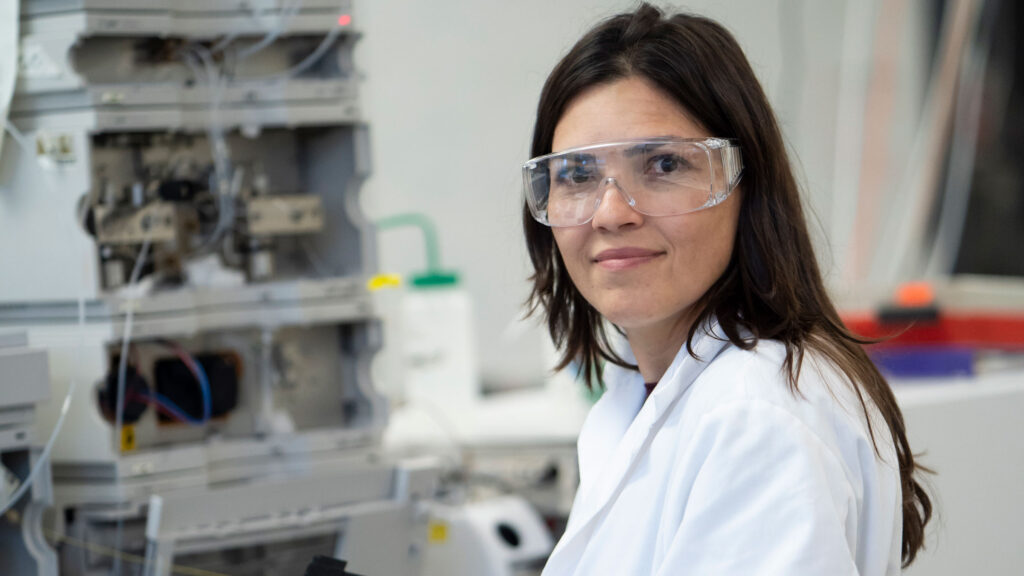Analyzing lipids, with applications in disease and meat quality

Christina Ferreira, a Purdue research assistant professor who is a metabolomics analyst at Bindley, has been involved in projects with applications related to Parkinson’s disease and meat quality.
What this research has in common, for Ferreira, is that it involves lipids – organic compounds such as a fat, oil or wax that dissolve in alcohol but not in water. Lipids are a vital part of living cells, and Ferreira is analyzing them to gain greater scientific understanding with a number of applications.
Ferreira has developed new technology to discriminate advanced Parkinson’s disease from controls using a few microliters of cerebrospinal fluid. As for the meat analysis, Ferreira and researchers at the University of Sao Paolo in Brazil have found an efficient way to determine whether beef is grain-fed or grass fed.
Ferreira supports other scientists’ research by helping them devise creative ways to measure biological phenomena – and it’s not just through “off the shelf” instruments.
“Usually you develop a method because you have a need,” she said. “Someone needs to use the instrument in a different way or needs to do the analysis in a different way. We are not there just to press buttons and run protocols. … We do whatever it needs to acquire the data the way it should be.”
Collaboration is key.
“People are really the most important resource at Bindley,” she said. “It’s not only expertise. It’s being committed to important research, to serving people to make the research work, to answer their questions.”